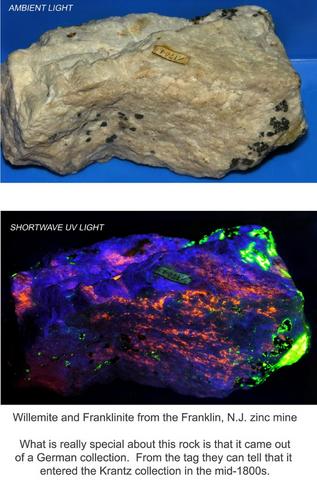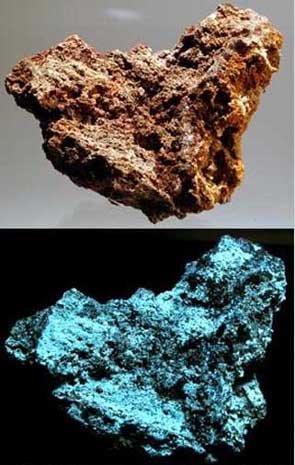Unexpected Acceleration
Toyota is a fine company. I have owned many cars made by them, and years ago even a Toyota sewing machine . I once was invited to tour one of their manufacturing plants, which was eye opening. These guys at Toyota were the gold standard of good ideas and best-practices. They treated their employees more humanely than just about any other company. Toyota is not the only car manufacturer which has been receiving reports for years of vehicles unexpectedly accelerating either. There have been numerous accidents and even deaths. Yet apparently as of yet no one is truly certain why these cars just out-of-the-blue decide to put their pedal to the metal. In a way it almost sounds like the computer named HAL in the movie 2001.
The situation described in the prior paragraph has nothing at all to do with accelerator pedals which are a bit sticky or slow to return back to an idle position once you remove your foot. These are entirely different situations. Both are frightening and dangerous, but when your car up and decides on its own to accelerate, and then perhaps continue accelerating, this is the more upsetting of the two.
Over most of the history of car manufacturing there has been some kind of mechanical linkage between the gas pedal and the engine. So even with the key off or with a dead battery, if the gas pedal is pushed down something moved in the engine's carburetor or fuel injection system. When you removed your foot from the gas pedal powerful springs returned everything to the idle position.
As digital electronics and chips have become more omnipresent the situation has evolved. It is well agreed that properly designed mechanical linkages are more reliable than the finest and most well designed digital electronic circuitry. Heat, vibration, static electricity, and moisture all will assure the rapid death of digital chips and their associated components. If you don't believe it, start leaving your iPod on the dashboard of your car all day, in the full sun with the windows rolled up. Or drop your iPhone into a full bathtub. Probably the most frustrating diagnostic situation is where an electrical circuit is intermittent. Most of the time it works fine, but then one time out of many millions it actually makes one or more mistakes. When the engineers examine it everything works fine, but under real life conditions sometimes things go badly wrong.
Several years ago car makers stopped having any direct mechanical linkage between the gas pedal and the engine. Instead they now communicated via wiring and digital chips. This was called drive-by-wire. In the last few years I have owned two brand new vehicles which had electrical problems. One was a Mercedes and the other a Nissan. I eventually just had to get rid of the Nissan. The Mercedes acted like your Windows computer. Sometimes the chips and the programming would all get so badly out of sync that I just had to re-boot it. This meant pulling over to the curb, stopping, and shutting it entirely off. Just like with a computer, when it started back up generally everything was fine.
When the military airplane makers discontinued mechanical linkages and went to fly-by-wire it was because they wanted the greater control and intelligence that a flight computer could provide. The civilian airplane manufacturers went to fly-by-wire to reduce weight, save money, and increase profits. Choosing not to have a hydraulic or mechanical backup system was done to reduce cost, most certainly not to increase safety and reliability. I don't know what reasons or justifications the car makers had. Even with power assist the steering and braking systems have a mechanical or hydraulic backup; but not the gas pedal.
Digital electronics have helped the car makers reduce harmful air pollution emissions, achieve better fuel economy, and have improved performance. The problem now is that each car now has a great many digital chips built into it. Each chip has thousands or even millions of transistors on it, and many thousands of lines of computer programming code. Remember the space flight which was a disaster because of errors in the computer programming? It happens. All the time.
My heart goes out to the engineers at Toyota. Many of the components which could be causing the problem are made by other companies (they are out-sourced). The guys who originally designed the component or who wrote the computer code controlling it may have left the company or even been laid off in order to improve quarterly profits and the bonuses of top managers. There may even be a little intentional sabotage going on by employees who feel they have been treated poorly by the company. Just think about all the viruses and malware floating around. All of these computer programs were deliberately written by incredibly smart people who want to cause havoc and hurt other people for one reason or another.
When engaged in diagnostic work one soon learns that it is not uncommon, in fact it is almost the norm, to find multiple malfunctions combining to cause the final disastrous situation. I don't doubt that in fact there were situations where the gas pedal got stuck under the floor mat. No doubt there are others where the gas pedal is slow or somewhat sticky in returning back to the idle position after one removes one's foot. Both are really quite easy and cheap to remedy.
Much more difficult to analyze and fix is the drive-by-wire situation where some computer chip and its associated programming code suddenly tell the car, entirely out-of-the-blue, to go to full throttle and hold it there. If one were a science fiction writer one could paint a picture where the murder of human life forms is being perpetrated by super-intelligent digital computers. Or maybe even by disgruntled workers writing computer code that one time in 100 million intentionally takes a completely unexpected course.
It is probably unwise to get downright xenophobic here, but what if the managers of some of Toyota's suppliers wanted to increase their company's profits (thereby their own bonuses), so rather than hire and maintain their own team of high paid, skilled, and loyal computer programmers they outsourced the work to some extremely low-wage but smart and skilled computer programmers in India who they have never actually met in person?
My entire private life has been filled with the very latest of technology for many years. I am an early adopter. A general class amateur radio operator in high school, instrument rated pilot; smart phones, digital cameras, GPSs, hybrid cars, big screen TVs - you name it. Back in the early 1980's I even wrote my own share of computer code. But these are mostly non-life threatening applications.
For 25 years I was a top manager involved in manufacturing. Our plants were noisy and dirty, many times had 100% humidity at high temperatures, and were regularly washed down to government food standards with high pressure wash down systems like you see at the car wash.
For years I fought a battle with both my bosses and also the engineers who reported to me regarding their desire to have the latest high technology gadgetry in the factory, and my desire for very high reliability and dependability under adverse circumstances. Relay logic vs. PLCs and computer chips. Down time in a factory environment where all the hourly workers stand around happily getting paid but not doing anything productive is extremely costly for a company.
I guess the good news is that if there is any company on the face of the earth which might be able to get to the bottom of this sudden acceleration problem, it is probably Toyota. And with both sales and manufacturing shut down the pressure has never been higher. The entire future viability of their company may be on the line here. So far all the public announcements say that they are just focusing on the gas pedal, but I'll bet that in secret their Japanese skunk works is furiously searching for the electronics cause of this very rare and intermittent sudden acceleration.
Good Luck Toyota!
-
-
-
-
–


























